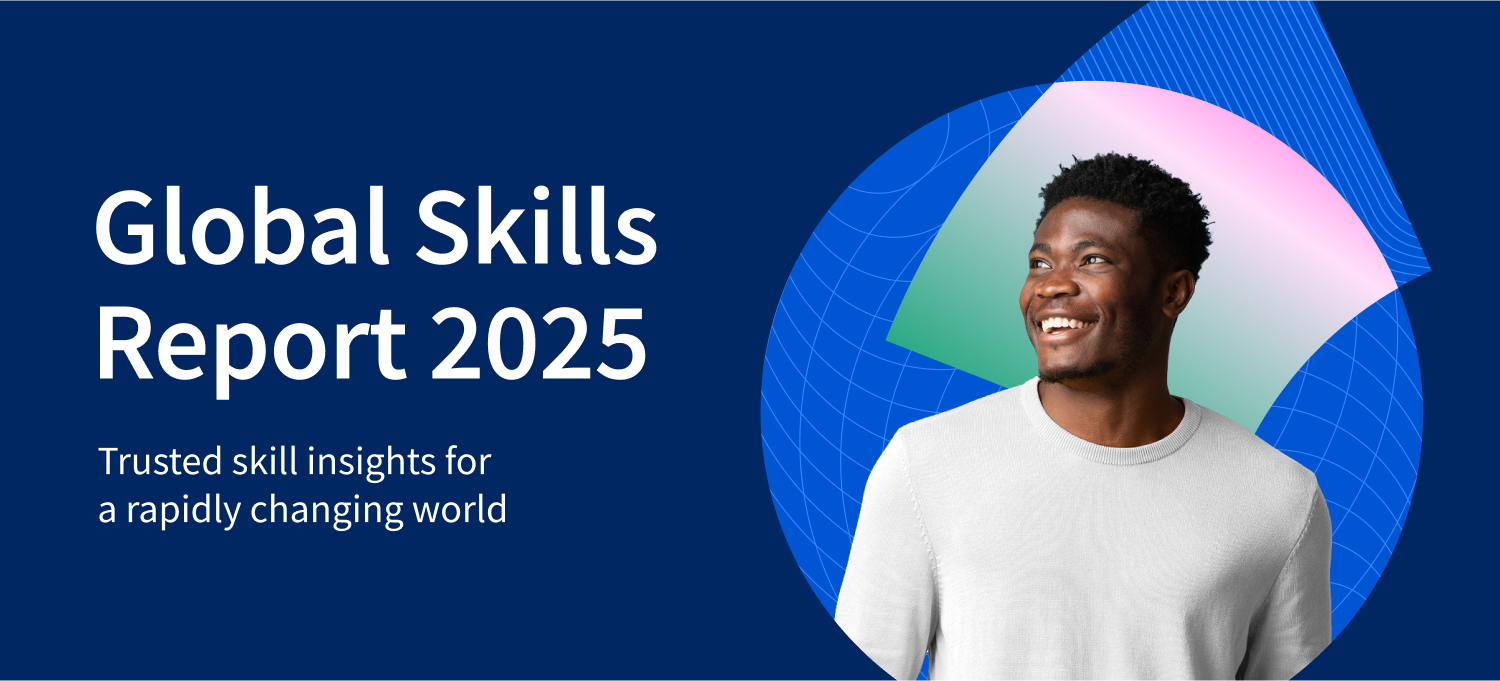By Greg Hart, Coursera CEO
I’m excited to share the seventh edition of Coursera’s annual Global Skills Report, offering comprehensive insights on the skill demands shaping the future of work. Drawing on data from our community of more than 170 million learners, this year’s report reveals where skill proficiency is rising around the globe, where gaps remain, and what’s driving learner behavior across 100+ countries.
Generative AI (GenAI) has rapidly gained both investment and industry adoption. Trends on Coursera mirror this momentum, with GenAI enrollments surging by 195% year-over-year and surpassing 8 million in total. In 2025, Coursera’s 700 GenAI courses have averaged 12 enrollments per minute—a dramatic increase from 1 per minute in 2023 and 8 in 2024—making GenAI the fastest-growing skill category on Coursera. India now has the most GenAI course enrollments of any country, with over 1.3 million enrollments in 2024.
I’m particularly inspired by how online learning is creating a level playing field for millions of learners across emerging markets, especially in new areas like GenAI. In the past year, GenAI enrollment has more than doubled across Asia Pacific, the Middle East, and Africa. Latin America has seen a 425% increase in GenAI enrollments, the highest anywhere.
This year’s skill proficiency rankings are based on a robust methodology that combines Coursera learner data with trusted external indicators, including World Bank metrics such as their Human Capital Index and Labour Force Participation data. The inclusion of this key third-party economic data allows us to corroborate our on-platform scores with external metrics, capturing a more holistic view of learner skill application in the economy.
Key Findings:
- In our overall global skills ranking, European nations occupy nine of the top ten ranks. Switzerland retains its status at the top of the rankings, with the Netherlands 2nd, and Sweden 3rd.
- Singapore (4th) is APAC’s leading skills hotspot. Hong Kong (13th), South Korea (14th), and Japan (17th) also attain top-20 positions.
- In contrast, major Anglophone nations, such as the United Kingdom (22nd), Australia (23rd), and United States (27th) rank lower.
- Latin America’s highest-ranked nation is Peru (45th), with Uruguay (49th) also among the top 50. Learners in the region have recognized cybersecurity as a major global skills gap, with enrollments in this domain from LATAM learners soaring 129% year-over-year (YOY).
- The United Arab Emirates (38th) is MENA’s skills leader, closely followed by Qatar (40th). GenAI enrollments surged 344% in the UAE and 165% in Saudi Arabia YOY, with learner behaviour aligning with significant region-wide investments in AI and other digital technologies.
- Micro-credentials improve learner employment outcomes, signalling key skills to employers. Learners worldwide are responding.
- Coursera learner behavior mirrors rising employer demand for candidates with micro-credentials, with Professional Certificate enrollments growing across all regions.
- We have now recorded over 15.4 million enrollments in our portfolio of Entry-Level Professional Certificates This includes 37% growth in North America—the highest of any region—and 36% in the Middle East and North Africa over the past year.
- Cybersecurity enrollments rise rapidly, but still lag behind global workforce demand.
- Cybersecurity enrollments on Coursera rose in 2025—up 106% in Latin America, 20% in Europe, and 14% in Asia Pacific year-over-year.
- However, nearly five million additional cybersecurity professionals are needed worldwide, and less than half of organizations feel “highly prepared” to defend against AI-driven cyber threats.
- Women’s participation in online learning grows, but GenAI gender gaps persist
- Women now represent 46% of Coursera’s global learner base, with some countries demonstrating gender parity or higher.
- For example, 56% of Kazakhstan’s Coursera learners are female, and women comprise 43% of the country’s learners in GenAI courses. However, the global average for the female share of enrollments in GenAI courses on Coursera remains 32%.
- Providing flexible credentials, confidence-building resources, and more female role models is crucial to achieving inclusive AI-driven growth worldwide.
To better assess global AI readiness, we’ve also introduced an AI Maturity Index, which complements our country rankings for proficiency in business, technology, and data skills. The Index combines learner data with metrics from the International Monetary Fund and Organisation for Economic Co-operation and Development to rank countries worldwide on AI research and innovation. Leaders around the world can use it to identify AI learning hotspots, understand regional progress, and pinpoint AI talent hubs.
Countries leading in our new AI Maturity Index—which highlights countries best equipped to harness AI innovation and translate skills into real-world applications—include Singapore (#1), Denmark (#2), Switzerland (#3), the United States (#4), and Finland (#5). European nations also stand out in this index, occupying 8 of the top 10 ranks.
The Coursera Global Skills Report 2025 offers a clear call to action — whether you’re shaping national education policy, building corporate learning programs, or aligning academic curricula with real-world needs. Coursera is committed to partnering with leaders across regions and sectors to achieve a more inclusive, promising future for workers around the world.

